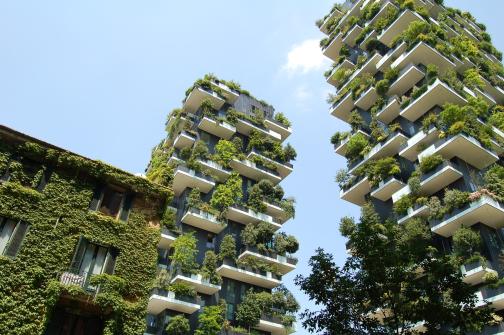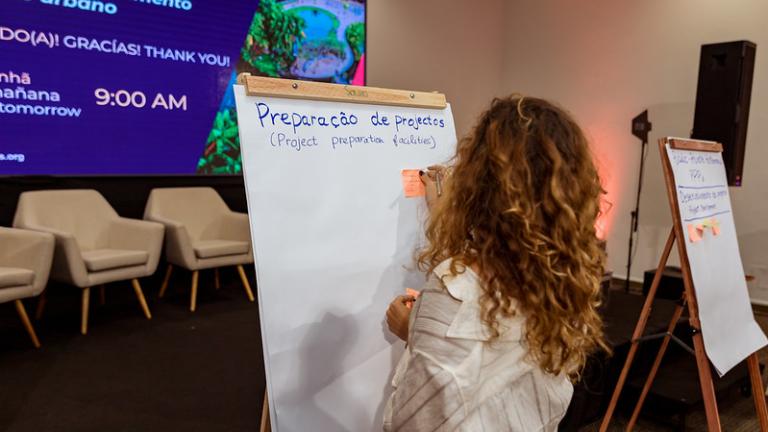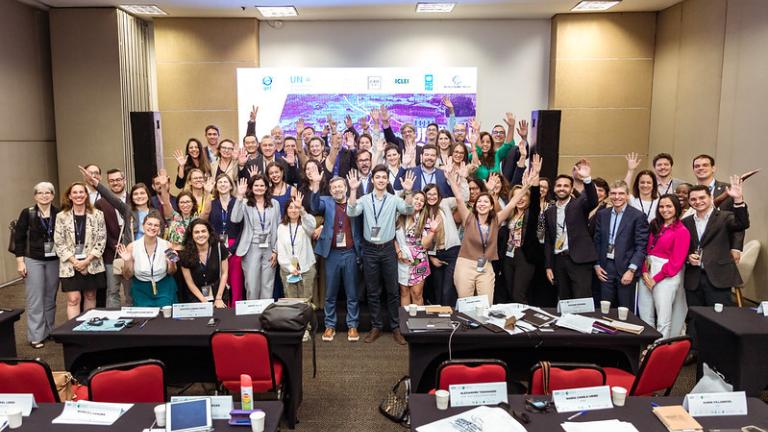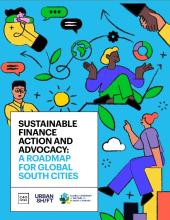Guide

How to decide if green bonds are right for your city
Green bonds can provide attractive financing options for climate projects in various sectors, but bond issuance is not possible in every context. In this guide, we explain how you can decide if green bonds are a good option for your city.
As cities look to encourage private backing for climate projects, one source to consider is the green bond market. The global market for green bonds (also known as ‘climate bonds’) totalled US$ 1.5 trillion as of the start of 2022. Green bonds can provide attractive financing and refinancing options for climate projects in various sectors:
- Green bonds can be a low-cost, long-term and diversified source of capital compared with traditional bank loans.1 By bundling projects into one investment, bonds provide economies of scale and attract new investors. Private-sector demand for green bonds is outstripping supply, which is helping many issuers to achieve low interest rates and suggests that the scale of private capital ready for cities to utilise could be significant.2
- Issuing a green bond can draw attention to your city’s climate priorities and climate mitigation and/or adaptation strategy, and make the city more attractive to investors.
- Green bond issuance can help to develop your city’s financial and risk management processes and increase collaboration between its environmental and finance departments, therefore improving the systems needed to raise funding in future.3, 4 Bonds tend to become cheaper with experience.
Climate bond issuance is not possible or appropriate in every context, however. In this C40 Cities guide, we explain how you can decide if they are a good option for your city.
READ MORE

Sustainable Finance Action and Advocacy: A Roadmap for Global South Cities
This C40-led webinar, held alongside 4th International Conference on Financing for Development (FfD4), aimed to equip mayors with the tools they need to advocate for expanded and accelerated access to urban climate finance.

UNEA-7 Cities and Regions Summit
Hosted in the lead-up to UNEA-7, this Summit will unite subnational leaders to strengthen collaboration and amplify the importance of cities.

UrbanShift Looks Back: On the Value of Expanding Access to Urban Climate Finance
C40's Jessy Appavoo, ICLEI's André Almeida da Vila, and UNEP's Sharon Gil share why and how UrbanShift has prioritized support for cities to access climate finance.

Sustainable Finance Action and Advocacy: A Roadmap for Global South Cities
Commissioned by C40 Cities, the Global Covenant of Mayors for Climate and Energy (GCoM), and UrbanShift, this Roadmap provides evidence-backed insights, policy recommendations, and tools for Global South city mayors.
